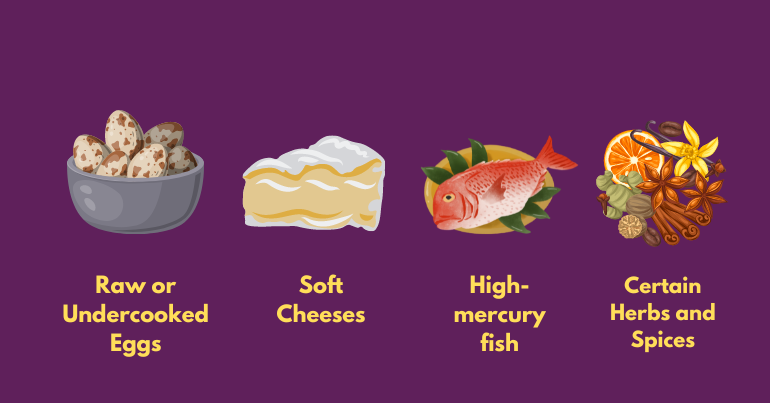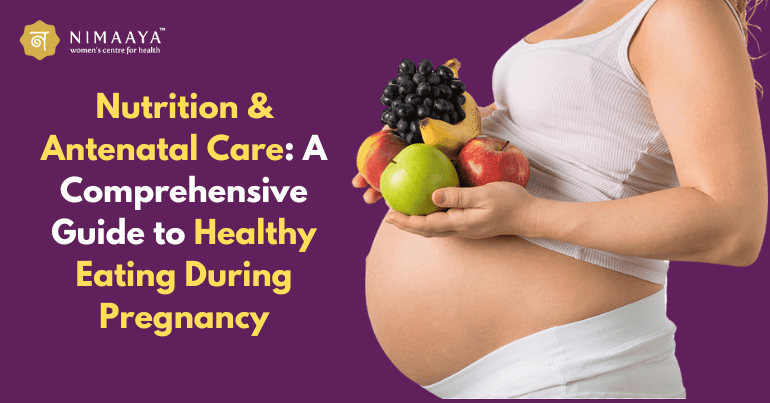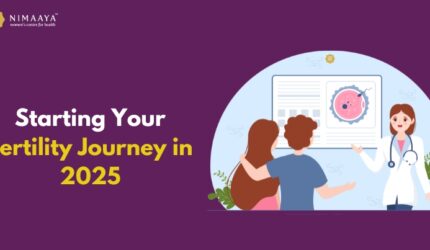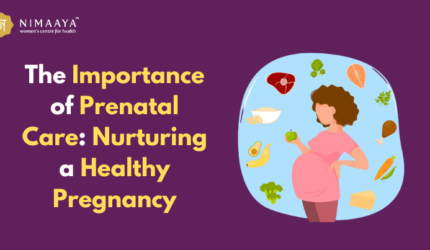Introduction
Welcoming a new life into the world is a journey like no other, filled with joy, anticipation, and undoubtedly, a whirlwind of emotions. Amidst the excitement, expectant mothers often find themselves navigating through a sea of information, particularly when it comes to ensuring optimal nutrition & antenatal care for a healthy pregnancy. An experienced healthcare provider understands the significance of nutrition during antenatal care during this crucial period and aims to provide a comprehensive guide tailored to the needs of expectant mothers. Let’s delve into the essentials of nutrition & antenatal care, unraveling the mysteries of what to eat, what to avoid, and how to manage the various challenges that may arise along the way.
What is Antenatal Care?
Antenatal care is the term used to describe the medical assistance and services given to expectant mothers prior to delivery. It encompasses a series of medical check-ups, screenings, and interventions aimed at monitoring the health and well-being of both the mother and the developing fetus throughout pregnancy. Antenatal care typically involves regular visits to healthcare professionals, including obstetricians, midwives, and nurses, who offer guidance on nutrition, exercise, and prenatal education. These appointments also serve as opportunities to address any concerns, screen for potential complications, and ensure that expectant mothers receive appropriate medical interventions and support to promote a safe and healthy pregnancy journey.
Importance of Antenatal Care
Antenatal care is a cornerstone of maternal health, encompassing a range of medical interventions, screenings, and support services aimed at ensuring the well-being of both mother and baby throughout pregnancy, that’s the reason why you need to know the importance of antenatal care. One crucial aspect of antenatal care is the provision of antenatal supplements, which play a pivotal role in addressing nutritional deficiencies and promoting optimal fetal development. These supplements, typically in the form of prenatal vitamins, are specifically formulated to provide essential nutrients such as folic acid, iron, calcium, and vitamins crucial for maternal and fetal health.
By incorporating nutrition & antenatal care with antenatal supplements into routine care, healthcare providers can help expectant mothers meet their increased nutritional needs, reduce the risk of birth defects, and support overall pregnancy wellness. Additionally, regular antenatal visits offer opportunities for education, counseling, and early detection of potential complications, empowering women to make informed decisions and access timely interventions for a safe and healthy pregnancy journey.
Importance of Nutrition During Pregnancy

The importance of nutrition during pregnancy is incredible because nutrition forms the cornerstone of a healthy pregnancy, playing a pivotal role in the growth and development of the unborn child. Adequate intake of essential nutrients not only supports the mother’s well-being but also contributes to the optimal development of the fetus. From promoting healthy fetal growth to reducing the risk of birth defects, the significance of nutrition & Antenatal Care during pregnancy cannot be overstated. Every morsel consumed lays the foundation for the future health and well-being of both mother and child.
Also Read: The Importance of Prenatal Care: Nurturing a Healthy Pregnancy
Key Nutrients for Pregnant Ladies
Now we will explore the Key Nutrients for Expectant Mothers, because Nutrition & Antenatal Care, both are equally important. A balanced diet rich in key nutrients is essential for the optimal health of expectant mothers and their babies. These nutrients include folic acid, iron, calcium, omega-3 fatty acids, vitamin D, and protein, among others. Folic acid aids in the prevention of neural tube defects, while iron supports the production of red blood cells to prevent anemia. Calcium is crucial for bone development, while omega-3 fatty acids contribute to brain and eye development. Ensuring adequate intake of these nutrients through a diverse and balanced diet is paramount for a healthy pregnancy.
A balanced diet during pregnancy should encompass a variety of nutrient-dense foods from all food groups. Balanced Diet for Pregnancy, This includes fruits, vegetables, whole grains, lean proteins, and healthy fats. Aim for a rainbow of colors on your plate, as each hue signifies a different set of vitamins, minerals, and antioxidants essential for optimal health. Incorporating a diverse range of foods ensures that you receive a broad spectrum of nutrients necessary for both maternal and fetal well-being.
❧ Folic Acid:
Vital for Preventing Neural Tube Defects – Folic acid is a B vitamin crucial for the early stages of fetal development. Adequate intake of folic acid before and during pregnancy significantly reduces the risk of neural tube defects such as spina bifida and anencephaly. Incorporate folate-rich foods such as leafy greens, citrus fruits, beans, and fortified cereals into your diet to meet recommended daily intake levels.
❧ Iron:
Supporting Red Blood Cell Production – Iron plays a pivotal role in the production of hemoglobin, the protein in red blood cells responsible for carrying oxygen to tissues throughout the body. During pregnancy, maternal iron requirements increase to support the expanded blood volume and fetal growth. Include iron-rich foods such as lean meats, poultry, fish, fortified cereals, and legumes in your meals to prevent iron deficiency anemia and promote optimal oxygen delivery to both you and your baby.
❧ Calcium:
Essential for Bone Health – Calcium is essential for the development and maintenance of strong bones and teeth in both mother and child. During pregnancy, calcium requirements remain elevated to support fetal skeletal development and prevent maternal bone loss. Incorporate calcium-rich foods such as dairy products, leafy greens, fortified plant-based milk alternatives, and tofu into your diet to meet daily calcium needs and promote bone health throughout pregnancy.
❧ Omega-3 Fatty Acids:
Nurturing Brain and Eye Development – Omega-3 fatty acids, particularly docosahexaenoic acid (DHA), play a critical role in the development of the fetal brain and eyes. These essential fatty acids are abundant in fatty fish such as salmon, trout, and mackerel, as well as in plant-based sources like walnuts, chia seeds, and flaxseeds. Consuming omega-3-rich foods regularly supports cognitive development and visual acuity in your growing baby.
❧ Vitamin D:
Supporting Calcium Absorption – Vitamin D is essential for the absorption of calcium and the regulation of calcium levels in the blood. During pregnancy, adequate vitamin D intake is crucial for promoting bone health in both mother and fetus. While sunlight exposure stimulates vitamin D synthesis in the skin, dietary sources such as fortified foods, fatty fish, eggs, and vitamin D supplements are also important for meeting maternal and fetal requirements.
❧ Protein:
Building Blocks for Growth and Repair – Protein is integral for the growth and repair of tissues, including those of the developing fetus. During pregnancy, protein needs increase to support fetal growth, placental development, and maternal tissue expansion. Incorporate lean sources of protein such as poultry, fish, tofu, legumes, nuts, and seeds into your meals to ensure adequate intake and promote healthy pregnancy outcomes.
Incorporating these key nutrients into your diet through a diverse and balanced eating plan lays the foundation for a healthy pregnancy and supports the optimal growth and development of both you and your baby. Remember to consult with your healthcare provider or a registered dietitian to individualize your nutrition & Antenatal Care plan based on your specific needs and preferences.
Foods to Avoid During Pregnancy

While it’s essential to focus on foods that promote optimal health during pregnancy, it’s equally crucial to steer clear of certain foods that may pose risks to the mother and baby. Raw or undercooked meats, unpasteurized dairy products, certain types of fish high in mercury, and deli meats should be avoided due to the risk of foodborne illnesses. Additionally, limit your intake of caffeine and avoid alcohol altogether to safeguard the health of your unborn child.
Managing Nausea and Food Aversions can be challenging during pregnancy, but avoiding foods that may trigger these symptoms can help alleviate discomfort. Hydration During Pregnancy is essential for overall health and can also help reduce nausea and food aversions by keeping the body well-hydrated. Additionally, maintaining a balanced diet is crucial for Weight Gain During Pregnancy, ensuring both the mother and baby receive the necessary nutrients for optimal growth and development. For Vegetarian and Vegan Pregnancies, it’s important to pay special attention to food choices to ensure adequate intake of essential nutrients while avoiding potential triggers for nausea and food aversions.
Furthermore, it’s important to be mindful of foods that may harbor harmful bacteria or toxins, potentially compromising maternal and fetal health. Here are some additional considerations for foods to avoid during pregnancy:
‣ Raw or Undercooked Eggs:
These may contain salmonella bacteria, which can lead to food poisoning. Ensure that eggs are thoroughly cooked before consumption, whether in dishes like omelets or baked goods.
‣ Unwashed Fruits and Vegetables:
While fruits and vegetables are essential components of a healthy diet, it’s crucial to wash them thoroughly to remove any potential contaminants, such as pesticides or soil-borne bacteria.
‣ Soft Cheeses and Unpasteurized Dairy Products:
Certain soft cheeses, such as brie, camembert, and blue cheese, as well as unpasteurized milk and dairy products, may harbor listeria bacteria, which can cause miscarriage, stillbirth, or other serious health complications.
‣ High-mercury fish:
Some types of fish, such as sharks, swordfish, king mackerel, and tilefish, are high in mercury, which can harm the developing nervous system of the fetus. Opt for low-mercury alternatives like salmon, shrimp, and canned light tuna.
‣ Excessive Intake of Certain Herbs and Spices:
While herbs and spices can add flavor and nutrients to meals, some, like parsley, sage, and rosemary, may have uterine-stimulating properties that could potentially trigger contractions or other adverse effects during pregnancy. It’s best to use these herbs sparingly or consult with a healthcare provider for guidance.
By being mindful of these foods to avoid and making informed dietary choices, expectant mothers can help ensure a safe and healthy pregnancy for themselves and their babies. Remember to prioritize foods that provide essential nutrients while minimizing potential risks to maternal and fetal health.
Managing Gestational Diabetes
Gestational diabetes, a condition characterized by high blood sugar levels during pregnancy, requires careful management through dietary modifications and, in some cases, medication. A diet rich in fiber, complex carbohydrates, lean proteins, and healthy fats can help stabilize blood sugar levels and prevent complications. Regular monitoring of blood glucose levels and close collaboration with healthcare providers are essential for managing gestational diabetes and ensuring a healthy outcome for both mother and baby.
Conclusion:-
Nutrition & Antenatal Care are integral components of a healthy pregnancy journey, laying the foundation for the well-being of both mother and child. By prioritizing a balanced diet rich in key nutrients, avoiding harmful substances, and addressing common challenges such as nausea and food aversions, expectant mothers can optimize their health and support the optimal development of their babies.
At Nimaaya IVF Center, we are dedicated to providing comprehensive support and guidance to expectant mothers throughout their pregnancy journey, ensuring a smooth and healthy transition into parenthood. Remember, every bite you take nourishes not only yourself but also the precious life growing within you. Embrace this journey with gratitude, knowing that you are providing the best possible start for your little one.




Comments 1
This is great information. I always try to help my clients enhance their routine and diet with whole foods while adding as little stress as possible. A lot of them have had success with meal planning or prepping on the weekend. It allows them to assemble quick, nutrient-rice, balanced meals when they’re pressed for time throughout the week.